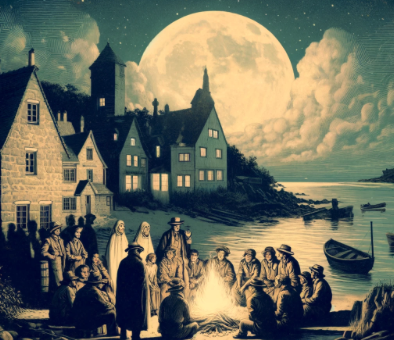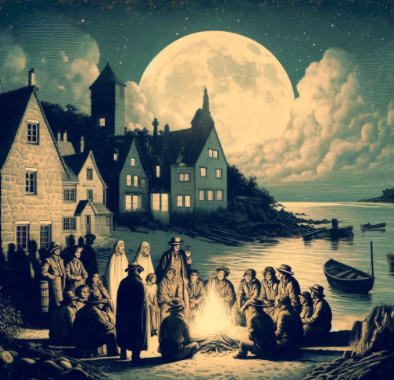
In a world where acts of heroism and compassion are celebrated, it’s hard to imagine a time when saving a life, especially one teetering on the edge of death, was seen as an act of folly or even a curse.
Yet, history and folklore are riddled with such beliefs, painting a complex picture our interaction with fate, superstition, and the unseen forces believed to govern life and death.
Edward B. Tylor, a pioneer in anthropology, references an intriguing phenomenon that existed among various cultures and communities, from the shores of Bohemia to the remote islands of St. Kilda, and even among the seasoned sailors of Europe and beyond.

These communities shared a chilling superstition: saving a drowning man was considered an act of defiance against the gods, a meddling with fate that could bring dire consequences.
Imagine the scene in 1864 Bohemia, where fishermen stood by, watching a fellow man battle the merciless waves, yet they dared not extend a hand. Their belief was rooted in the fear that intervening in such a manner would bring ill luck upon themselves.
This wasn’t isolated to Bohemia. Sir Walter Scott’s “The Pirate” narrates a similar sentiment through the character of Bryce, the pedlar, who viewed the act of saving a shipwrecked sailor as a harbinger of “capital injury” to the rescuer.

But what could possibly justify such a seemingly inhumane stance?
The underlying belief was that if a person was drowning, it was by the gods’ will, and any attempt to save them would mean cheating fate out of a life.
The rescuer, by this logic, would then be marked for death in the drowning person’s stead.
This grim view was supported by tales and even the explanation for accidental falls into water, seen as the work of spirits with lethal intentions.
Tylor offers an explanation through the concept of “Survival” – the idea that modern behaviors and beliefs can be echoes of ancient practices, unconsciously repeated.
Thus, the reluctance to save a drowning individual might not always stem from fear or inability but from the vestiges of a once widespread belief that deemed such actions as unlucky or forbidden.
It’s fascinating to consider how these ancient beliefs shaped behaviors in life-and-death situations.
While today’s society largely champions the virtue of saving lives without hesitation, understanding these superstitions offers a glimpse into the complex tapestry of human culture and the evolution of our collective moral compass.
It reminds us of the power of inherited beliefs and how they can influence actions in moments of crisis, bridging the past and present in the continuous flow of human history.

